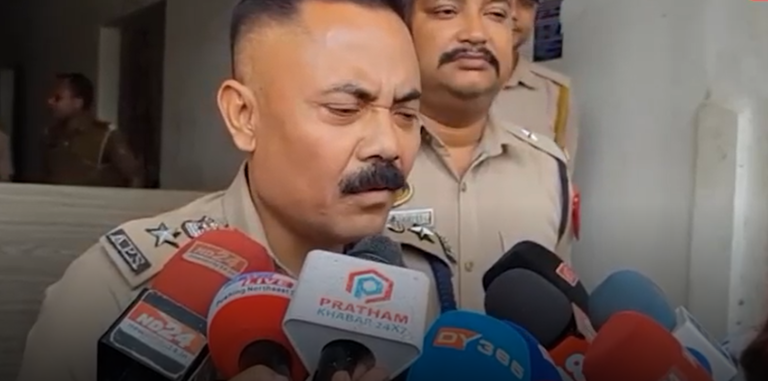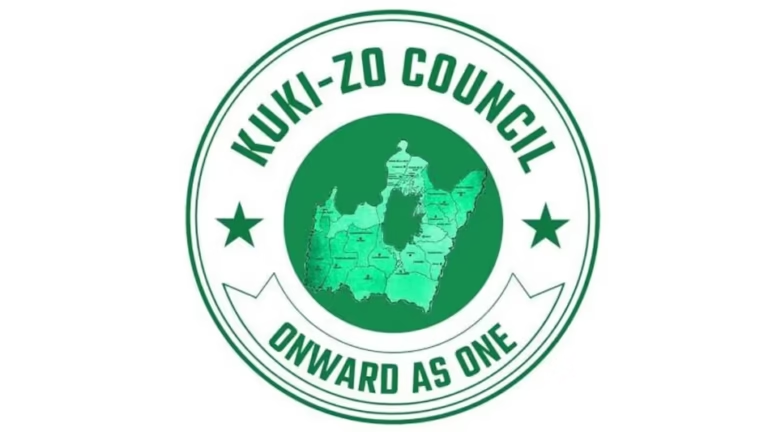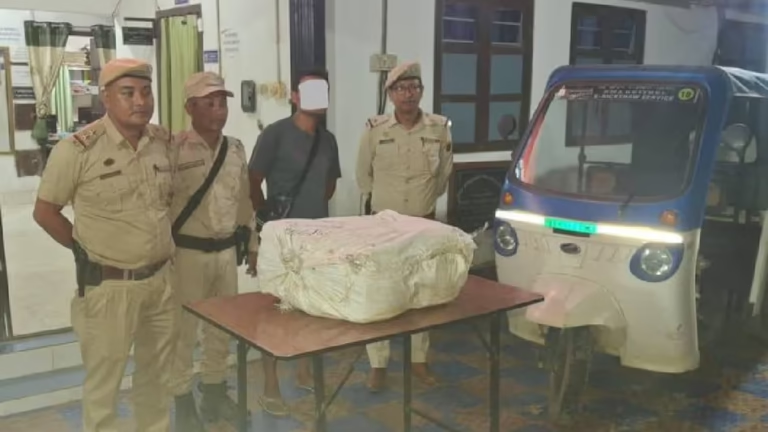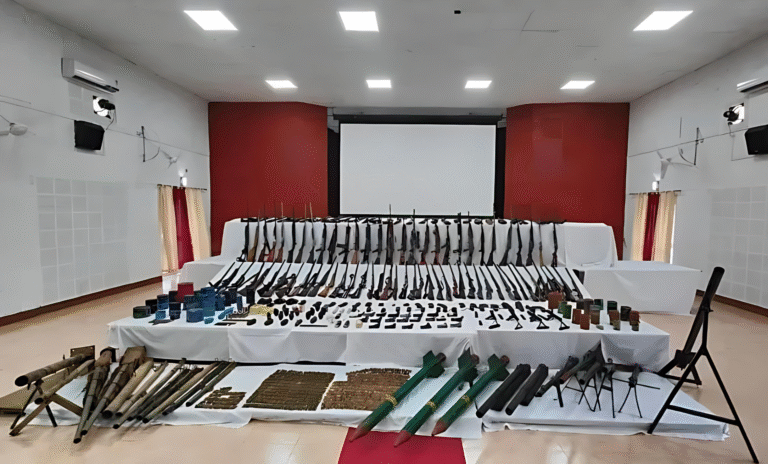The Silent Scars of Manipur: A Tale of Trauma, Violence, and Resilience
Struggle for Justice: Women and Violence in Manipur
Summary
Manipur has been a hotspot of severe violence and unrest, particularly in recent years, with the ongoing ethnic conflict and resulting atrocities against women. The horrific incidents of sexual violence, including a viral video of women being paraded naked, have brought the issue of systemic injustice and indifference to the forefront. The situation calls for urgent action, with calls for greater accountability and for the region to break free from its cycle of violence and neglect.
The Deep-rooted Issues of Violence Against Women in Manipur
Manipur, a state nestled in the northeastern part of India, has been grappling with both ethnic and political unrest for decades. But recently, it’s the haunting stories of sexual violence against women that have gained international attention. The disturbing reality is that, despite these crimes, many of the victims are left in the shadows, their voices drowned out by the chaos of regional conflicts.
The story that broke the internet in 2023—a viral video of two Kuki women being paraded naked by an armed mob—represents a culmination of the violence that has festered in the region for years. As the video made its rounds, it not only shocked the world but also shed light on the deep-rooted issues of gender-based violence and institutional indifference. The outcry was deafening, but the action came too late, with arrests only happening after more than two months had passed.
The Political and Social Climate in Manipur
Manipur’s complex socio-political landscape has been marred by conflicts between different ethnic groups, primarily the Meitei and Kuki communities. This division, alongside the long-standing insurgencies and the ongoing military presence due to the Armed Forces Special Powers Act (AFSPA), creates an atmosphere where lawlessness thrives. Women, as always, bear the brunt of this violence.
As far as the state’s response to these issues is concerned, there is a glaring disconnect between the authorities and the people. In the case of the horrific attack on the two Kuki women, it took the virality of the video to spur the state to take any action. This delay in justice highlights a pattern of impunity that often surrounds crimes of sexual violence in conflict zones. It begs the question: why are women in conflict zones so often ignored?
The Role of AFSPA and Legal Frameworks
The presence of the Armed Forces Special Powers Act (AFSPA) has been a contentious issue in Manipur for decades. The act gives the Indian Army sweeping powers, including the ability to shoot to kill or arrest without a warrant. This, while meant to help maintain order, often exacerbates human rights abuses, especially when it comes to violence against women.
There have been numerous reports of women being subjected to sexual violence by armed personnel. However, the law shields these perpetrators from prosecution unless the state government grants permission for prosecution. This legal loophole creates a significant barrier to justice, ensuring that women in these conflict zones remain vulnerable.
The idea that an armed force can operate with such impunity is a serious violation of women’s rights. The AFSPA not only empowers the military but also weakens the state’s legal infrastructure, making it harder for victims to pursue justice. Women in Manipur face an impossible choice: to remain silent in the face of abuse or to risk their safety in seeking justice that often never comes.
Rising Voices of Protest and Call for Reform
The viral video was not just a wake-up call for the world; it sparked a renewed call for reform in Manipur. Human rights groups, activists, and citizens alike are now demanding stronger protections for women, an end to the militarized presence in the state, and a repeal of AFSPA. While public figures like Bollywood actors and international organizations have condemned the violence, it is the voices from within the region that are pushing for real change.
One significant development is the use of zero FIRs to ensure that cases of sexual violence are filed promptly, even if the victims cannot access their local police stations. This initiative helps bypass jurisdictional issues that often prevent cases from being reported. But will this be enough to create lasting change? Will the voices of the oppressed, particularly women, finally be heard?
The Way Forward: Breaking the Cycle of Violence and Injustice
While the issues in Manipur are complex, there are steps that can be taken to break the cycle of violence and injustice. Firstly, there needs to be accountability for the crimes committed, regardless of the perpetrator’s affiliation. The government must repeal AFSPA, which has only perpetuated violence in the region, and replace it with a framework that respects human rights and ensures justice for all citizens.
In addition to legal reform, there must be a societal shift in how women are treated, especially in conflict zones. Women must be seen not as victims but as active agents in the rebuilding process. Their voices should be at the center of any peace talks or discussions about the future of Manipur. Gender equality and women’s safety must be non-negotiable pillars in the push for peace.
Furthermore, the international community has a role to play in holding the Indian government accountable for the abuses taking place in Manipur. While local organizations and activists are fighting on the ground, international pressure can help ensure that the government takes meaningful action.
The Human Cost of Inaction
Ultimately, the violence in Manipur is not just a political issue; it is a human issue. It is about the lives of countless women who continue to live in fear, whose cries for justice go unheard. Every day that passes without action is another day that these women are denied their fundamental rights. It is time for the Indian government and the international community to take a stand.
Manipur’s women are not just statistics. They are daughters, mothers, and sisters who deserve to live in safety, free from fear and violence. Their stories must be heard, and their rights must be defended.
FAQs
1. What is the significance of the viral video from Manipur?
The viral video depicting the brutal assault of two women from the Kuki community brought global attention to the ongoing violence against women in Manipur, highlighting the lawlessness and systemic abuse occurring in the region.
2. How does AFSPA affect women in Manipur?
The Armed Forces Special Powers Act (AFSPA) gives the military excessive powers, often leading to unchecked violence, including sexual assault, against women. It makes it difficult for victims to seek justice, as military personnel are shielded from prosecution without the state government’s permission.
3. What is the purpose of Zero FIRs?
Zero FIRs allow victims of crimes to file reports at any police station, regardless of jurisdiction, ensuring that investigations are initiated promptly without delays caused by administrative hurdles.
4. What reforms are needed to improve the situation in Manipur?
Reforms must include the repeal of AFSPA, better legal protections for women, and greater accountability for military personnel involved in human rights violations. Additionally, societal changes are needed to ensure women’s voices are included in peace and political discussions.
5. Why are women in conflict zones like Manipur more vulnerable to violence?
Women in conflict zones often face heightened vulnerability due to the breakdown of law and order, the militarization of society, and cultural attitudes that marginalize women’s rights and safety.




